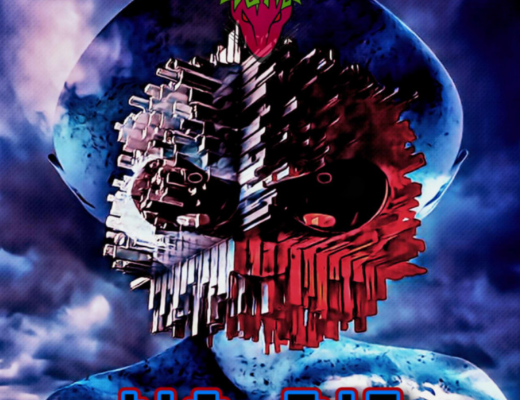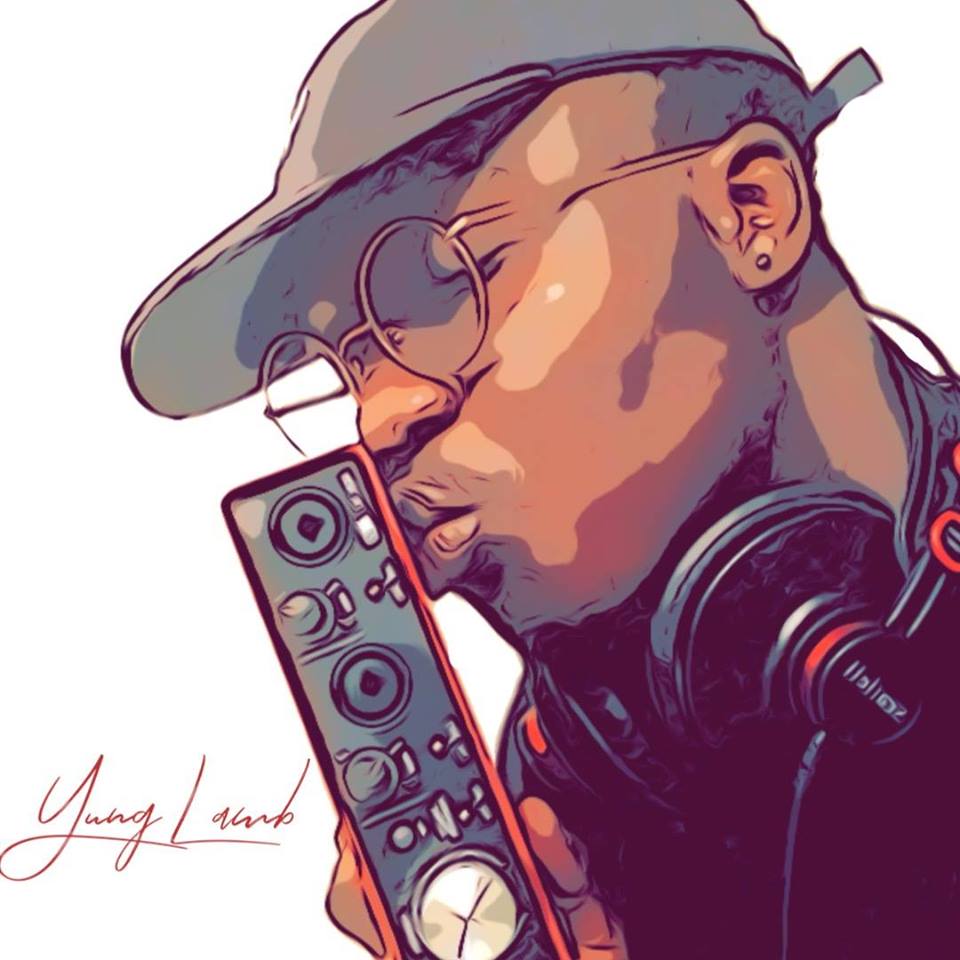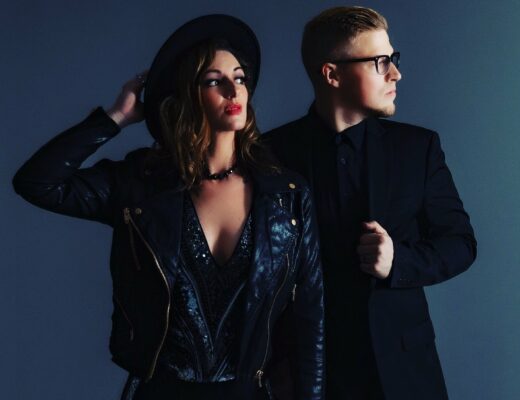Infamous C-4 speaks with the weight of someone who has lived through more than a few verses could hold. Born on Groundhog Day and raised around Six Flags Drive, he carved out his voice through southern chaos, unexpected cyphers, and a fiercely individual approach to sound. In this no-filter conversation, he opens up about the first rap battle that forced him into the craft, the magnetic pull of artists like Twista and Do or Die, and the long shadow of mismanagement that stalled his early momentum. He also gives insight into what kept him creating after Artykles of Magnitism disbanded, why DIY isn’t just a phase, and how repetition plays a bigger role in rap than many would like to admit. This one is for the heads who still care about lyricism, loyalty, and laying the truth bare, bar by bar.
Welcome to A&R Factory, Infamous C-4 — we’re looking forward to unravelling some of your tales from Six Flags Drive to cyphers and beyond. Let’s get into it, the weird, the wild, and the wonderfully unpolished bits too. Being born on Groundhog Day is a bit of a rare one—do you ever reflect on how time and repetition have shaped your growth as an artist?
Being born on Groundhog Day is rare, and that is part of the reason people like me are so rare. Not just as an artist, but in everything I do. When people go to the left, I move to the right, so I do not follow the crowd. I have never been a crowd pleaser, and you can hear that in my music. Music is supposed to be rare, or it will not last the test of time. I can still play Michael Jackson records and still have the same feeling now about a song like “Beat It” or “Smooth Criminal” that I did decades ago, and that feeling I have is “Wow, that’s a hard song. That is how I want my listeners, or listeners for the first time, to think when they play C-4. Repetition is the key to becoming the artist you are supposed to become.
That first rap battle in high school sounds like a pivotal moment, even if it didn’t go your way. Looking back, how important was that experience in pushing you to take your own writing seriously?
That was very pivotal in my future then, and I didn’t even know it. I wanted to play basketball when I grew up because, as a child, seeing people like Michael Jordan, “Magic” Johnson, Allen Iverson, etc., made me want to be a part of that. Being a very competitive person, because I thought I had to be to play sports, leaked into my trash talking which led me to rap in the first place. However, if you had asked me how I would’ve started rapping, I would have never thought it would have started with me battling. Rap battles were an up north thing, I thought. I never saw a person from the south or of southern origin battle head to head with a crowd to listen live. That feeling alone was a natural high I would never forget, even if I embarrassed myself. Honestly, if that day never happened, I probably would have never started rapping. I believe it went my way after all. Plus, dude was biting off of Biggie Smalls’ rhymes anyway, so by default I won.
You’ve mentioned rapping along to artists like Twista, Do or Die, and Coolio before you wrote your own material—what drew you to those artists in particular when you were younger?
Who knows. It could’ve been the beat, their style, their wordplay and how they can twist words and syllables to their advantage. I do know one thing, though, all of their music was hot.
The Artykles of Magnitism had a unique setup with members from different cities—how did that variety in backgrounds influence your approach to collaboration and sound?
With sound, it taught me that southern beats and southern music ain’t all there is to good music. It made me think outside the box when writing my material. What I look like rapping down south style only when they are rapping all kinds of ways and styles. I would only go so far with my music because I would be limited to only southern beats and rap styles.
I couldn’t freestyle on my own at that time. I had to learn and lean on people from all over whom I respected lyrically. I remember rapping with this dude from Saginaw, Michigan named “Craig”, and he was nice like Jay Z nice in 9th grade, believe it or not. He was an ill dude at the time, so I started hanging out with him and others alike. Rapping all of the time helped me become like them, nice on the mic. I remember Craig’s words to this day. He said, Fred, don’t stop. Keep going. Even if you mess up, keep going. He believed in me when I didn’t even believe in myself. It’s people like Craig and Lamar who help me gain a perspective I didn’t even know I had. Oh, and now when I collaborate, it’s magical.
Atlanta clearly had a big impact on you, especially growing up around Six Flags Drive. What aspects of that environment still feed into your lyrics and perspective today?
Survival. In the 90s, living in Cobb County was wild and dangerous at times. As a child, I saw fights every week, or at least that’s what it felt like. I challenged my first bully in Cobb County. I fought and got beaten up on Six Flags Drive, it taught me much of what and who I am today. You figure I grew up in the era of freaknik and being around that and watching what actually went down influenced how I party and rap. But not just Six Flags Drive, Atlanta itself is a crazy place. I got good and bad times in those environments, and I wouldn’t take it back for anything. I learned to hustle and got hustled. I learned to be good and bad, and when to be good and bad. All of those moments I lived, I rap about good and bad.
After your group parted ways, what kept you going creatively? Was there a specific turning point that helped you stay committed to making music on your own terms?
After the group parted ways, I still had ties with other rappers and singers, so that is what kept me going. I loved music, and when I first started to actually record in a real studio called “SoundLab” in Marietta, Ga. It turned me out musically. The different sounds, effects, and what you can do to manipulate them to make a whole new sound were crazy to me. The more I learned, the more I wanted to keep doing music, whether 1 person heard me or the whole world. My thing was lyrics, though, and it still is.
You’ve spoken honestly about the role poor management played in the group not breaking through—what lessons from that time would you pass on to artists just starting out now? Management, what management?
The manager I had was not a manager. He was a person with a thought, and he tried to run with it. I guess he saw something in the crew back then, but he could never deliver. I don’t wish that on any artists of any genre. It’s a big waste of time, energy, and ultimately money. My advice to you is to be your own manager. Who knows what your manager is doing behind your back? Watching the group TLC taught me that. But if you feel you need a manager to help you out, then get one. But BEWARE.
The early days were full of experimenting—freestyles, beat-making, live shows. Do you feel any part of that DIY spirit has stuck with you in how you approach music today?
Yes and no. I don’t do shows as of right now because even though they are important, I feel I can reach people in a different way without going all over the map. Social media has taken over in a lot of ways, and if you are an artist and are not tapped in, then I don’t know what to say to you, but WAKE UP. Maybe I will return to the stage one day, but right now my goal is set in other ways to achieve the same common goal, which is to get the music out. Nothing else is more important than that as of right now. I do everything myself, mostly. However, nothing will beat a team. I started Infamous Entertainment by myself, and the vision I have for it will be released through a team.
With that said, if you are looking for new music, merch, beats, and more, go to Famousc4.com.
Interview By Amelia Vandergast




No Comments